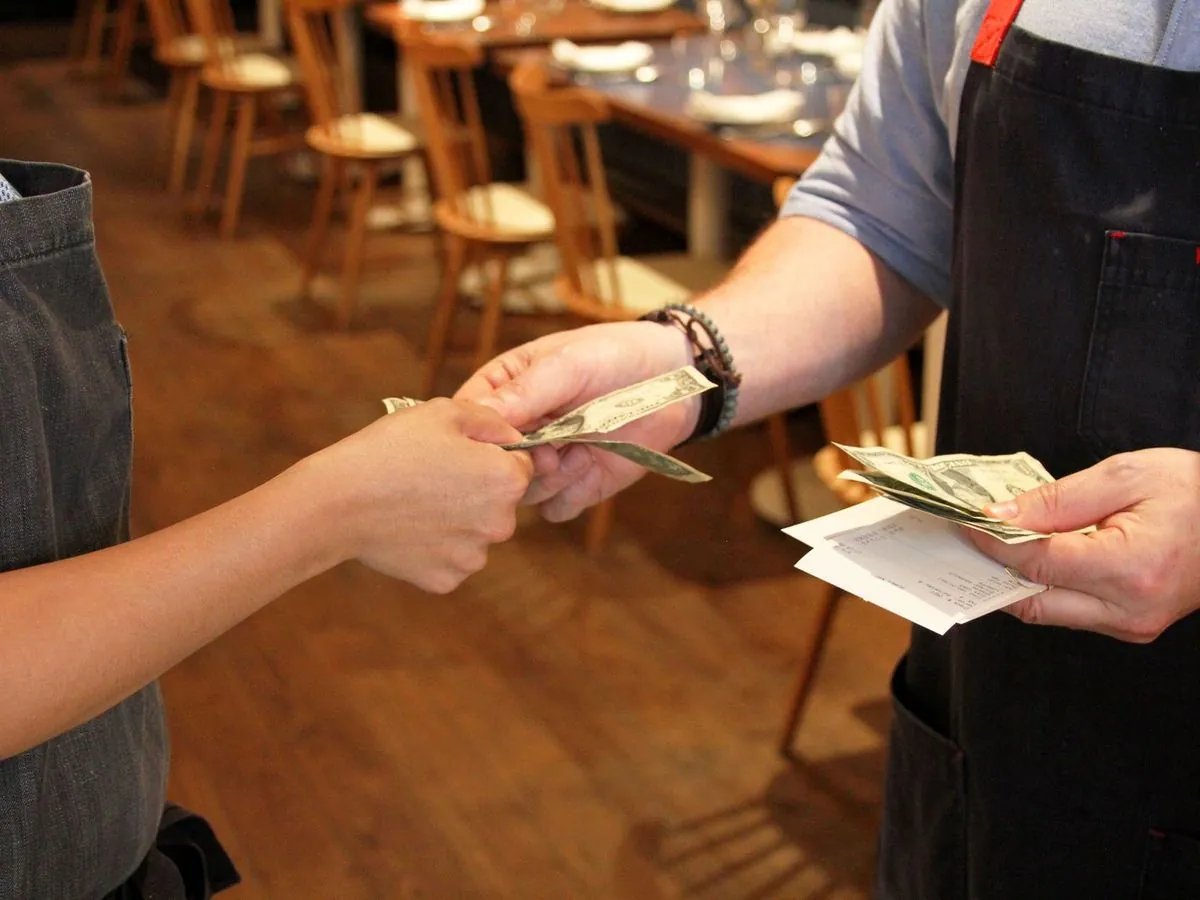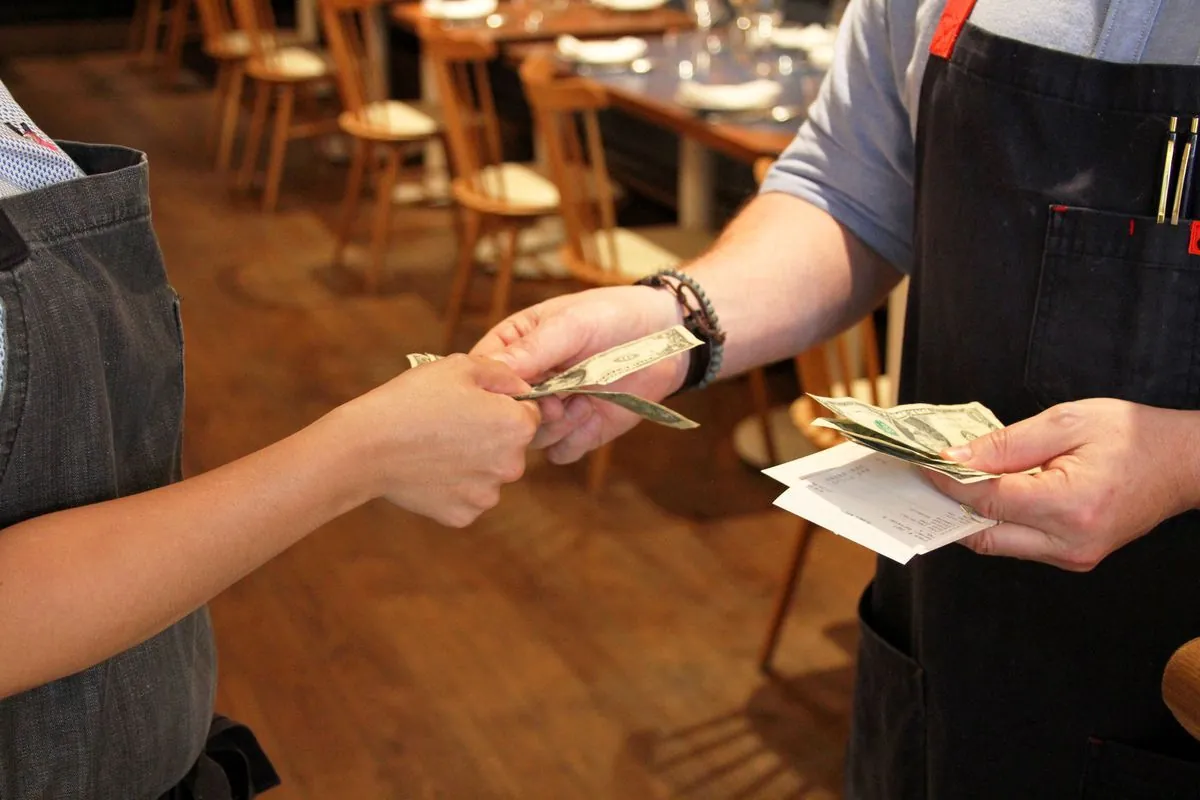Trump and Harris Align on Tip Tax Elimination: Experts Skeptical
Former President Trump and Vice President Harris support eliminating federal taxes on tips, a proposal gaining traction among politicians. However, economists warn of potential drawbacks and limited benefits for workers.

In an unexpected alignment of political views, Donald Trump and Kamala Harris have both expressed support for eliminating federal taxes on tips. This proposal, which emerged in June 2023 when Trump announced his backing at a Nevada rally, has since gained traction among politicians from both parties. However, experts caution that the plan may not deliver the intended benefits to workers and could have unintended consequences.
The idea of tax-free tips has quickly caught on in the political sphere. Senate Republicans have introduced legislation to codify the proposal, with Nevada's Democratic senators swiftly backing it as well. Harris echoed support for the idea at a Nevada rally on August 10, 2024, potentially blunting Trump's advantage on the issue.
"We view it as both a good economic policy and a big political winner with blue-collar workers. We think it's a great way to get the votes of the waitresses and busboys and the car valets and the caddies."
However, many economists argue that the plan is unlikely to have a significant practical impact on workers' lives. According to an analysis by Yale's Budget Lab, tipped workers represent less than 3% of the American workforce. Even among low-wage workers in the bottom quarter of wage earners, only 5% earn tips.
Howard Gleckman, a senior fellow at the Tax Policy Center, stated, "I don't know of an analyst on either the left or the right who thinks that this is actually a good idea. There's no real economic argument for it."
The proposal could have substantial fiscal implications. The Committee for a Responsible Federal Budget estimates that the plan could cost the government $10 billion to $15 billion annually in lost tax revenue. Over a decade, Trump's proposal could cost at least $150 billion, while Harris's potentially more modest version could cost at least $100 billion.

Interestingly, the history of tipping and its taxation in the United States is complex. The practice originated in Tudor England in the 16th century, with the first known reference to tipping in the US dating back to 1786. The IRS introduced Form 4070 for reporting tip income in 1965, and in 1987, they implemented the Tip Rate Determination Agreement to improve compliance.
Critics of the proposal argue that it could exacerbate existing issues in the service industry. The practice of tipping has been criticized for perpetuating wage inequality and racial discrimination. Some labor advocates, like Saru Jayaraman, president of One Fair Wage, view the proposal as a superficial attempt to address the affordability crisis faced by service workers.
Service industry workers have mixed reactions to the idea. Amy Burke, a bartender in New Orleans, expressed enthusiasm for the potential increase in take-home pay. However, Katie Giede, a server at Waffle House in Georgia, while acknowledging the potential help, emphasized the need for more comprehensive solutions to address low wages in the industry.
As the November 2024 election approaches, the debate over tip taxation is likely to intensify. With the expiration of much of the 2017 tax cuts looming in 2025, the next Congress will likely tackle new tax legislation, making the outcome of this proposal uncertain.


































